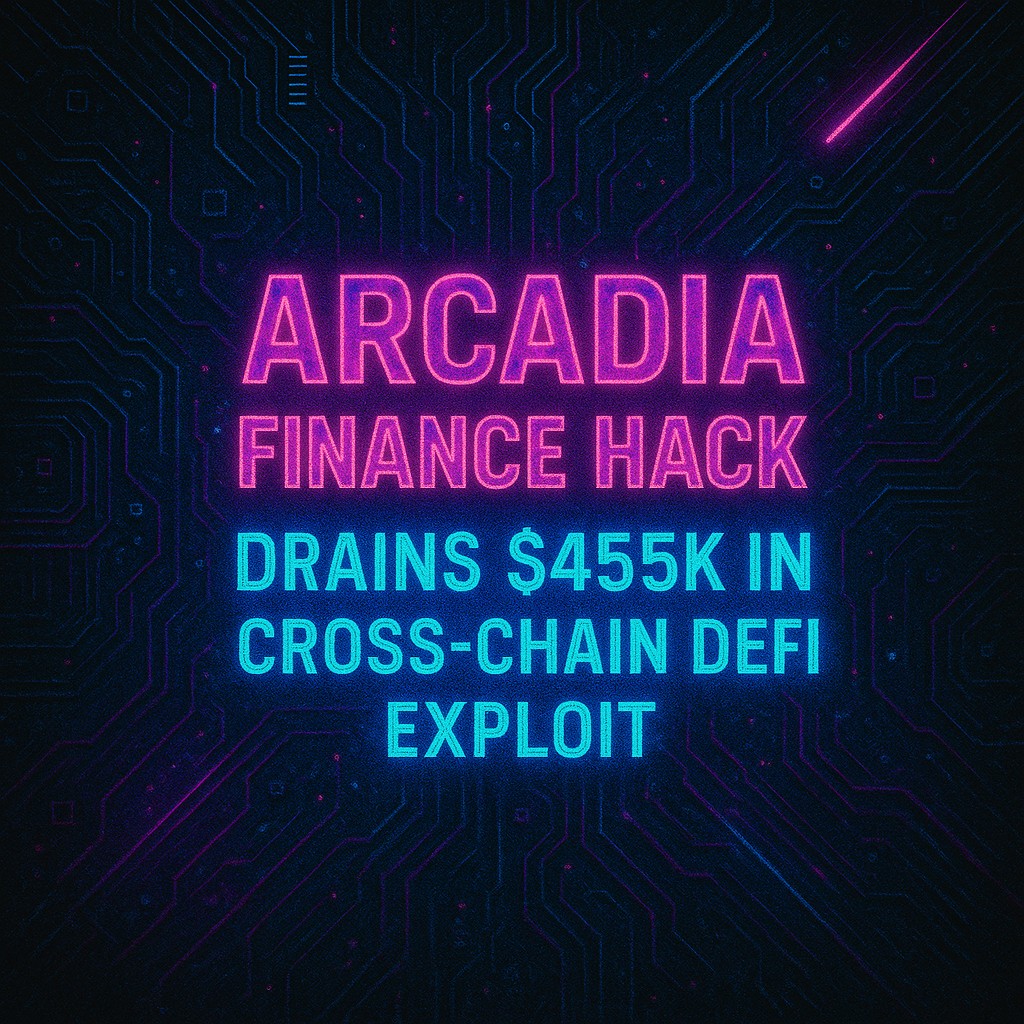Arcadia Finance Hack Drains $455K in Cross-Chain DeFi Exploit
The Arcadia Finance hack has become the latest cautionary tale for decentralised finance, with attackers siphoning off approximately $455,000 through a sophisticated cross-chain exploit that exposed flaws in the platform’s smart contract code.
The Arcadia Finance hack targeted the protocol’s Ethereum and Optimism vaults, exploiting unchecked input validation and bypassing liquidity withdrawal checks. According to blockchain security firm PeckShield, the vulnerability allowed the attacker to drain funds from multiple user accounts in minutes.
The incident represents a further setback for the DeFi sector, which, despite frequent high-profile breaches, continues to attract capital due to its high yields.

How the Arcadia Finance Hack Unfolded
On-chain analysis shows the Arcadia Finance hack began with the attacker deploying a malicious contract to interact with Arcadia’s vault system. By exploiting a logic flaw in asset transfer functions, they were able to withdraw collateral without repaying debt, effectively creating “free” liquidity to siphon.
The attacker then bridged stolen funds to Ethereum mainnet, where they were quickly swapped into privacy-focused assets and dispersed through decentralised exchanges. This mirrors tactics used in other recent DeFi breaches.
Cross-Chain Risk in Focus
The Arcadia Finance hack underscores the growing risks of cross-chain interoperability a feature touted as the future of DeFi. By linking multiple chains, protocols expand their attack surface, offering hackers more points of entry.
Security experts say the complexity of cross-chain contracts makes thorough auditing more challenging. “Every bridge is an extra vector,” notes Yulia Voronina, a blockchain auditor. The Arcadia Finance hack serves as a further reminder that composability can be detrimental in both directions.
Industry Reaction and Insurance Gap
Arcadia Finance has paused all vault operations and is working with security firms to patch the vulnerability. However, in a blow to affected users, the platform confirmed it does not carry protocol-level insurance, meaning there is no guaranteed restitution for stolen assets.
The Arcadia Finance hack has sparked renewed calls for mandatory security audits and on-chain insurance pools for DeFi platforms. As regulators eye the sector, such incidents could accelerate the push for stricter compliance.
A Familiar Pattern
From the Ronin Bridge exploit to the recent Multichain freeze, the Arcadia Finance hack fits a familiar pattern: highly technical vulnerabilities exploited by actors who vanish across chains before detection.
For retail investors, the lesson remains stark high APYs come with high risk. And in the volatile world of DeFi, security can never be assumed
Create An Unparalleled Trading Experience
At Wisuno, we deliver a secure, transparent, and innovative trading environment backed by trusted regulation, giving you confidence at every step.
Office 12, 3rd Floor, IMAD Complex, Ile Du Port, Mahe, Republic of Seychelles
support@wisunofx.com
